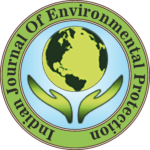IJEP 44(2): 168-175 : Vol. 44 Issue. 2 (February 2024)
G. David Abishek1, T. Shirmila1* and Ruth Felicita2
1. Madras Christian College, Department of Commerce, Chennai – 600 059, Tamil Nadu, India
2. Stella Maris College (Autonomous), Department of Commerce (General), Shift – II, Chennai – 600 086, Tamil Nadu, India
Abstract
The Sustainable Development Goals (SDGs) refer to a set of 17 goals established by the United Nations Organization (UNO) in 2015. The need for SDGs arises due to the presence of environmental, economic and social problems. The intensity of these problems is also constantly increasing day by day. This might even lead to the destruction of the earth. It calls for SDGs with the belief that the achievement of these goals will decrease the hazards to the earth and ensure a better place to live for future generations. Nowadays, government insists all companies and businesses adopt sustainable goals. This study is conducted to scrutinize the consumers’ awareness of sustainable consumption of food and clothing. Firstly, sustainable consumption is the use of products and services in a way that minimizes their impact on the environment. It is adopted to address various issues, such as inefficient use of resources, climate change, biodiversity loss, pollution, improper disposal of waste and so on. This study has two major objectives, to determine the consumers’ awareness of benefits of sustainable consumption and to identify the challenges in adopting sustainable consumption. It is conducted among consumers in the age group of 18-60 years in Chennai city and the data was collected through a structured questionnaire. The collected data was analyzed using the percentage method and SPSS tool.
Keywords
Sustainable consumption, Conscious consumption, Sustainable development goals, Consumption pattern, Awareness
References
- Haron, S.A., L. Paim and N. Yahaya. 2005. Towards sustainable consumption: An examination of environmental knowledge among Malaysians. Int. J. Consumer Studies. 29(5): 426-436.
- Thøgersen, J. and U. Schrader. 2012. From knowledge to action- New paths towards sustainable consumption. J. Consumer Policy. 35: 1-5.
- Chekima, B., et al. 2016. Sustainable consumption: The effects of knowledge, cultural values, environmental advertising and demographics. Int. J. Sustain. Develop. World Ecol., 23(2): 210-220.
- McDonald, S., et al. 2006. Toward sustainable consumption: Researching voluntary simplifiers. Psy-chol. Marketing. 23: 515-534.
- Govindan, K. 2018. Sustainable consumption and production in the food supply chain: A conceptual framework. Int. J. Prod. Eco., 195: 419-431.
- Özkaya, F.T., et al. 2021. Sustainable consumption of food: Framing the concept through Turkish expert opinions. Sustain., 13(7): 3946.
- García-Oliveira, P., et al. 2022. Solutions for the sustainability of the food production and consumption system. Crit. Reviews Food Sci. Nutrition. 62(7): 1765-1781.
- Berry, E.M., et al. 2015. Food security and susta-inability: Can one exist without the other? Public health nutrition. 18(13): 2293-2302.
- Park, S. and Y. Lee. 2020. Scale development of sustainable consumption of clothing products. Sustain., 13(1): 115.
- Connell, K.Y.H. and J.M. Kozar. 2014. Environmentally sustainable clothing consumption: Knowledge, attitudes and behaviour. In Roadmap to sustainable textiles and clothing: environmental and social aspects of textiles and clothing supply chain. Ed S.S. Muthu. pp 41-61.
- McNeill, L. and R. Moore. 2015. Sustainable fashion consumption and the fast fashion conundrum: Fashionable consumers and attitudes to sustain-ability in clothing choice. Int. J. Consumer Studies. 39(3): 212-222.
- Harris, F., H. Roby and S. Dibb. 2016. Sustainable clothing: Challenges, barriers and interventions for encouraging more sustainable consumer behaviour. Int. J. Consumer Studies. 40(3): 309-318.
- Taber, K.S. 2018. The use of Cronbach’s alpha when developing and reporting research instruments in science education. Res. sci. edu., 48: 1273-1296.
- Hill, B.D. 2011. The sequential Kaiser-Meyer-Olkin procedure as an alternative for determining the number of factors in common-factor analysis: A Monte Carlo simulation. PhD Thesis. Oklahoma State University, Oklahoma, USA.
